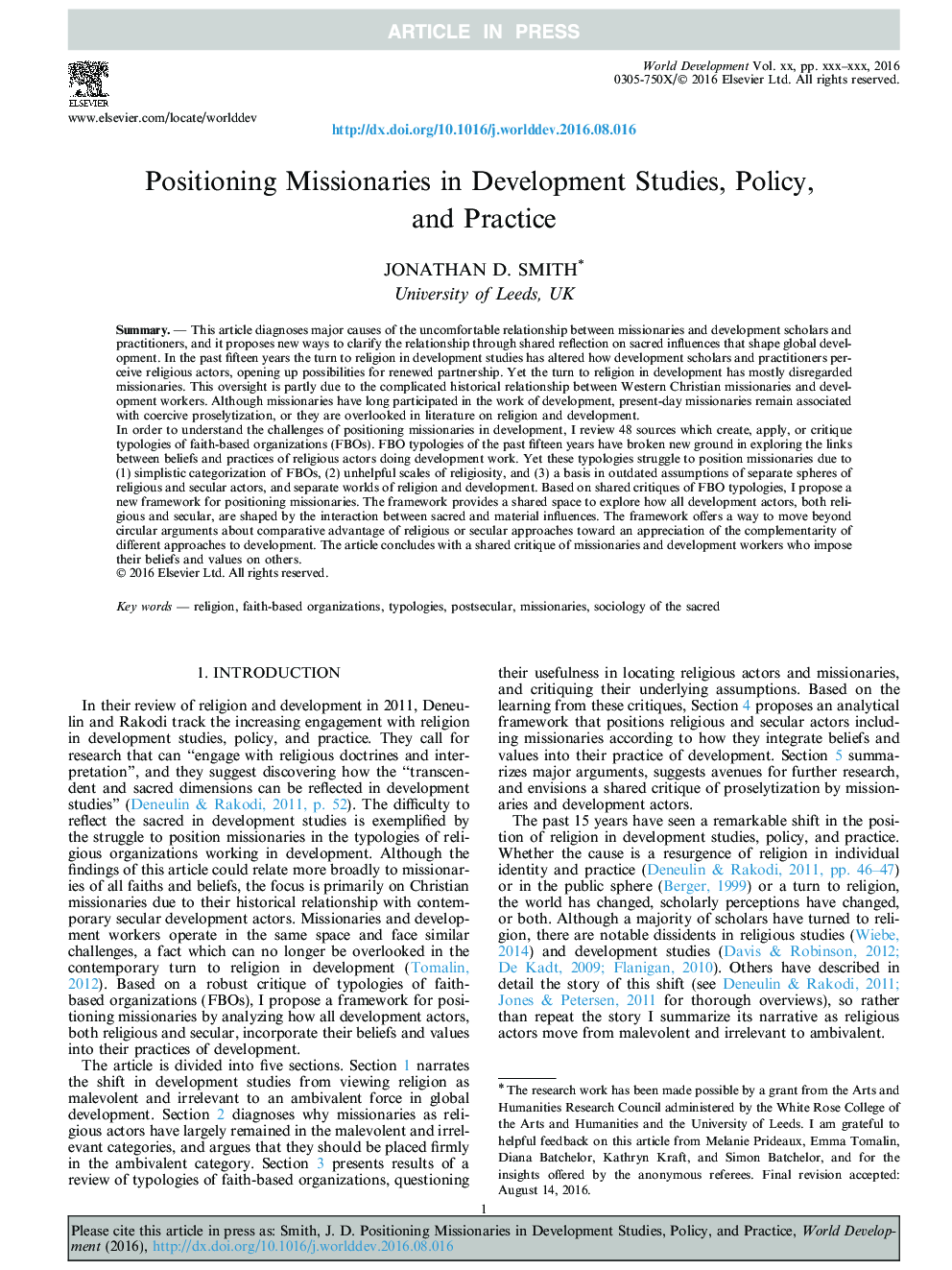| Article ID | Journal | Published Year | Pages | File Type |
|---|---|---|---|---|
| 5105240 | World Development | 2017 | 14 Pages |
Abstract
In order to understand the challenges of positioning missionaries in development, I review 48 sources which create, apply, or critique typologies of faith-based organizations (FBOs). FBO typologies of the past fifteen years have broken new ground in exploring the links between beliefs and practices of religious actors doing development work. Yet these typologies struggle to position missionaries due to (1) simplistic categorization of FBOs, (2) unhelpful scales of religiosity, and (3) a basis in outdated assumptions of separate spheres of religious and secular actors, and separate worlds of religion and development. Based on shared critiques of FBO typologies, I propose a new framework for positioning missionaries. The framework provides a shared space to explore how all development actors, both religious and secular, are shaped by the interaction between sacred and material influences. The framework offers a way to move beyond circular arguments about comparative advantage of religious or secular approaches toward an appreciation of the complementarity of different approaches to development. The article concludes with a shared critique of missionaries and development workers who impose their beliefs and values on others.
Related Topics
Social Sciences and Humanities
Economics, Econometrics and Finance
Economics and Econometrics
Authors
Jonathan D. Smith,
